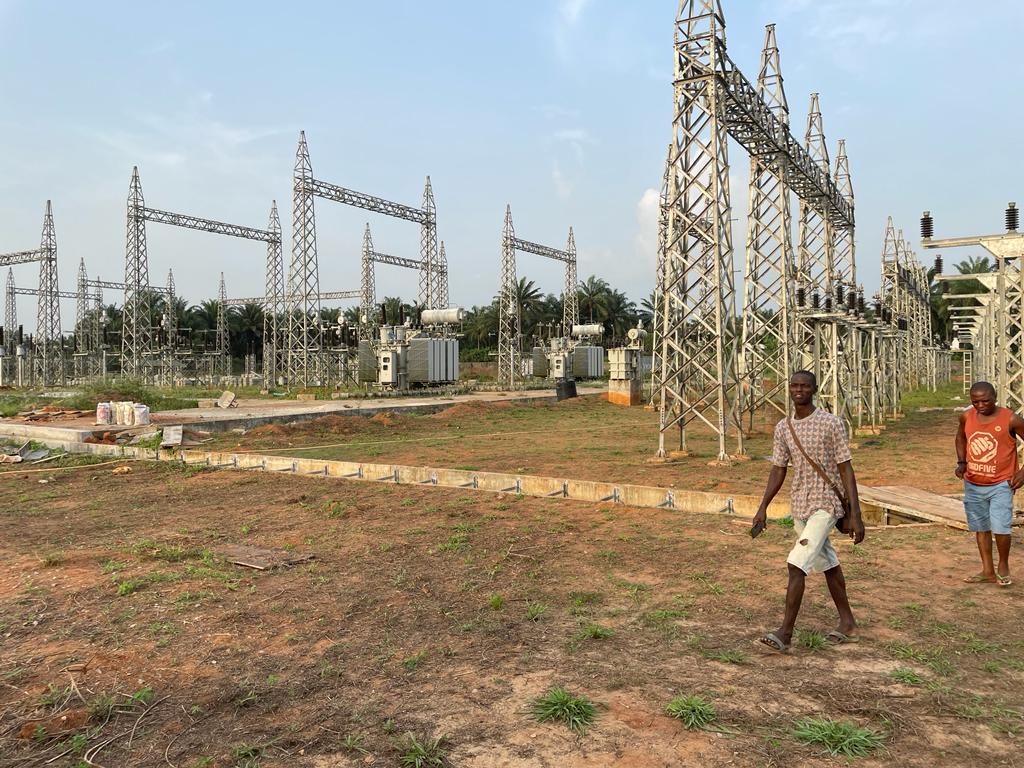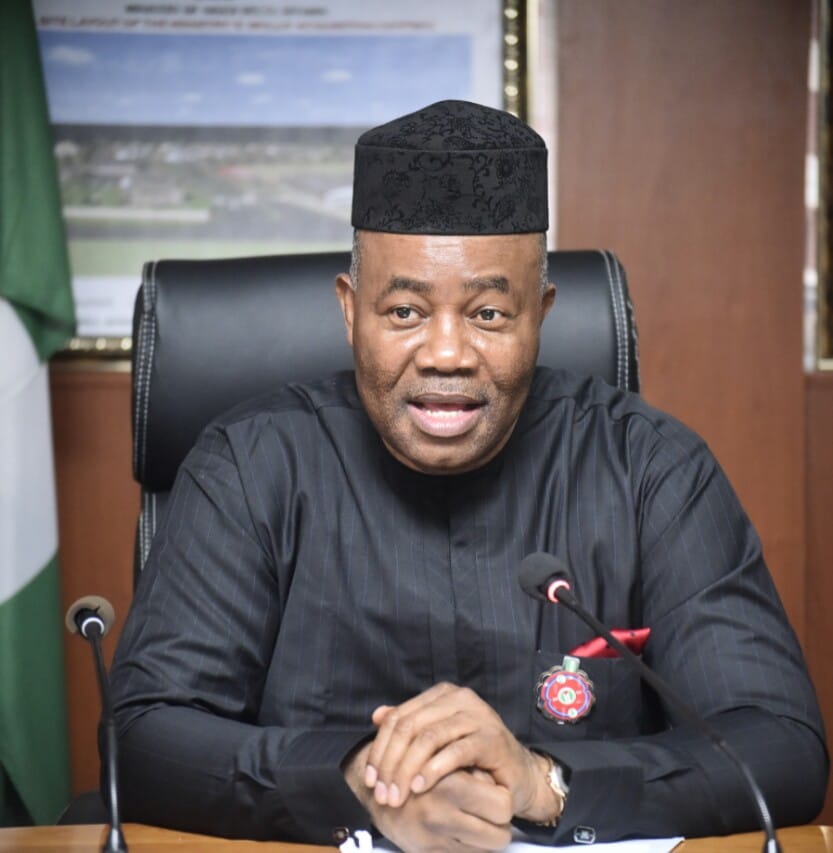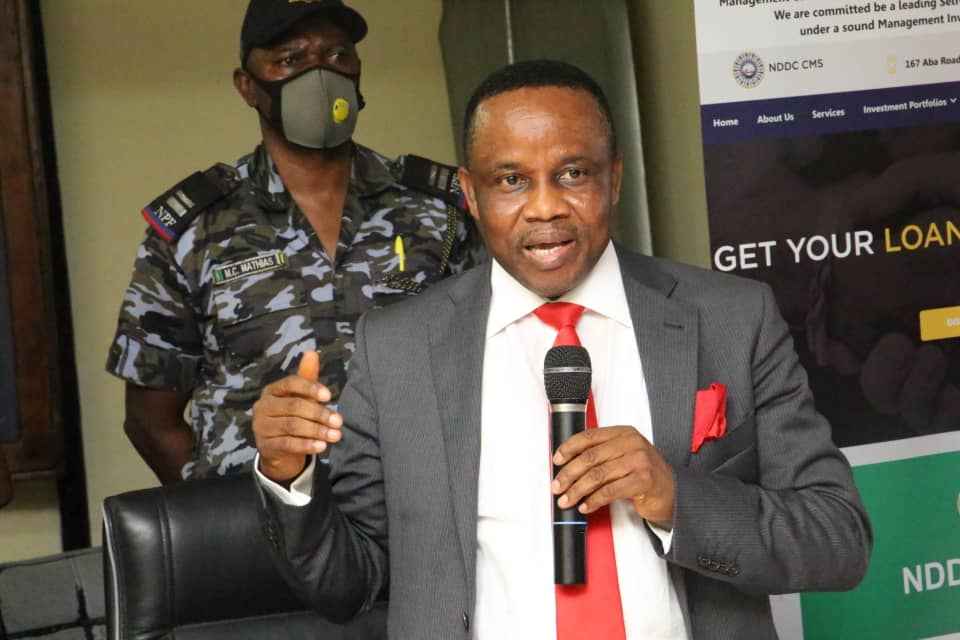Prince Anthony Ekene Onwuka, a Germany-based lawyer and project management consultant, is the Special Assistant, Project Monitoring and Special Duties, Presidential Monitoring Committee on the Niger Delta Development Commission (NDDC).
The Commission, established in 2001, is saddled with the responsibility of redressing the historical neglect to which the oil and gas-rich region had been subjected by successive governments since independence. Unfortunately, Until the coming of the present administration the hope that the intervention of the NDDC would change the fortune of the Niger Deltans had not been fulfilled due to the poor leadership of the agency.
In an exclusive interview with The African Courier, Barrister Onwuka talks about the work of the Presidential Monitoring Committee and the challenges facing the Commission. He also discusses diaspora engagement in national development and Niger Delta Affairs Minister Godswill Obot Akpabio’s possible role at the 2023 elections:
Barrister, when President Muhammadu Buhari appointed your Committee in 2019, there was hope that its work would change the situation at the NDDC. Would you say that that hope has been fulfilled?
Without any doubt, anybody conversant with the NDDC in particular and the Niger Delta in general knows that it’s no longer business as usual.

Since the appointment of the Presidential Monitoring Committee, there has been a far more robust oversight regime in place at the NDDC, achieved through effective and consistent monitoring of projects undertaken by the Commission.
Moreover, the Commission has now been reporting appropriately to the Presidency as stipulated by the NDDC Act, providing a balanced and detailed understanding of projects’ status, contractors’ concerns and other relevant information.
What would you say the Committee has achieved since its inception?
Projects that have long been abandoned are being executed again.
Some of these projects have now been completed. These include the 13-storey headquarters building of the NDDC in Port Harcourt which was abandoned for 21 years.
We also have other high-profile projects, such as the abandoned 1050-bed hostel project at the University of Uyo (UNIUYO), which was commissioned last December, and the 64 flats accommodation for the Special Protection Unit of the Nigeria Police Force in Rivers State, which had also been abandoned project for many years. This is not to mention more than 70 roads that were completed and commissioned within the last 12 months.
The NDDC also made immense contributions to the completion of the newly constructed Eastern bypass road in partnership with the Rivers State government. Moreover, so many youth empowerment programs and support schemes for people with disabilities and other vulnerable groups have also been implemented.

Lest I forget, a 132 KVA Substation Power Project located in Ilaje Local Government Area of Ondo State, a project so dear to the Minister of Niger Delta, will be completed in March. After the project’s commissioning, 15 communities will be connected to the national grid after 20 years.
Also, the 2×150MVA, 330/132KV, 2 X 60MVA, 132/33KV substations and associated lines in Ikot Ekpene, alongside the 2x 30MVA, 132/33KV substation in Ekparakwa and 132KV, DC line from Ikot Abasi to Ekparakwa, are expected to be completed this year.
Honestly, the Committee has changed the narrative in the Niger Delta today.
Is the NDDC living up to its responsibility as a game-changing agency for development?
To some extent yes. There is no gainsaying the fact that successive governments failed to vigorously implement the developmental goals of the Commission to the letter, giving room to so many abandoned projects, duplication of projects and youth restiveness.
Luckily, the leadership of the current NDDC management under the supervision of Chief (Senator) Godswill Obot Akpabio, the Minister of Niger Delta Affairs, has changed the narrative.
The current leadership of NDDC, headed by Pastor Effiong Akwa, PhD, who is the Interim Administrator of the Commission, has been doing a wonderful job. Akwa is a man of grace, considering the numerous projects completed by the Commission within the short period that the NDDC has been under the wisdom of the man, who is being supported by the visionary leadership of the Minister.
Pastor Akwa has now confirmed that the Commission’s inability to complete projects in the past is due to failure of management.
Despite the new accomplishments of the NDDC there is still a lot of work to be done. In fact, it has been reported that its current management inherited over 1,900 abandoned projects across the Niger Delta. What would you say are the main challenges facing the Commission?
Funding has been a big challenge, caused by, among other factors, the failure of the International Oil Companies and other relevant organizations to fulfil their statutory obligations to the NDDC.
Another challenge I would like to mention is the delay in approving the NDDC budget by the National Assembly. Could you believe that the NDDC 2021 budget has just been approved? Let alone the 2022 budget which has been submitted and is still waiting for approval as we speak.

Delays in budget approval are responsible for disruptions in the funding of the Commission and its projects. Early approval will enable a seamless implementation of the Commission’s plans.
The first condition for development to take place in peace. The region must be united and peaceful to allow meaningful progress to be made. It is therefore important for all the stakeholders to support the leadership of the Commission no matter who is in charge.
Going forward, how best could the NDDC implement its mandate?
By itemising and taking proper stock of all the NDDC projects as recommended by the Presidential Monitoring Committee, narrowing down those most impactful on the living conditions of the people and swiftly implementing such projects.
The Commission should avoid repetition or duplication of projects and strictly implement the recommendations of the monitoring team by completing all projects.
It’s also important that the NDDC should employ the services of competent consultants before awarding contracts to avoid overpaying for projects.
Moreover, the Commission should proactively avoid abandoned projects by making sure that every contractor presents a valid insurance policy before being awarded certain projects as proof of financial capacity.
There have been criticisms of the Interim Administration and calls by stakeholders for the proper constitution of the Board of the NDDC. What is delaying the appointment of the Board?
My brother, first of all, it is important to constitute the NDDC board for proper representation. Without apologies I would rather like to ask, what was the collective achievements of the successive NDDC boards since the inception of the agency?
In as much as I would like the NDDC board to be constituted, it is important to note that NDDC leadership should be based on competence, capacity, empathy, confidence, integrity, courage, optimism, accountability and loyalty.
Sir, it might surprise you to know that all these attributes can be found in the current NDDC management headed by Pastor Effiong Akwa, PhD, regardless of the resistance. Yes, some critics say he is too courageous, hard and sometimes not responsive but that does not remove or deny the fact that his ability to perform is second to none.
What impact has the Chief (Senator) Godswill Obot Akpabio’s leadership made to the situation at the NDDC?
The visionary leadership of the ‘Uncommon Minister’, Senator Godswill Akpabio, is completely responsible for the direction of NDDC as the supervising minister today. His sheer purposefulness has made the difference.
Nigeria will go to the polls next year, given the leadership quality of the Minister, don’t you think that he should seek the presidency?
His ability to transform Nigeria is not in question as his track record is evident and verifiable. My brother, let me shock you, the uncommon transformer, as he is known, has President Buhari as his mentor, father and hero. I am pretty sure that he can only declare or make his ambition known when Mr President says so.
As a diaspora returnee who is putting his knowledge and experience at the service of his nation, do you think that you have made a difference in your assignment?
To a very reasonable extent yes, and not only me, most Diasporans here in Nigeria are playing important roles in stabilising the economy and in public policy implementation.
What role do you think the diaspora can most impactfully play in national development?
The Nigerians in diaspora, and particularly members of NIDO [Nigerians in Diaspora Organisation], should help in attracting more FDI (foreign direct investment) and technical expertise to drive development in our country.
What advice would you offer diaspora Nigerians planning to go back home to do business or work?
They should not be afraid of failure. Secondly, they should ignore the nay sayers and internet activists and concentrate specifically on the need to profit or succeed in any sector they may wish to invest.
Nigeria is huge, blessed with natural resources, rich in human capital and untapped potential, let’s make the country a better place.
 THE AFRICAN COURIER. Reporting Africa and its Diaspora! The African Courier is an international magazine published in Germany to report on Africa and the Diaspora African experience. The first issue of the bimonthly magazine appeared on the newsstands on 15 February 1998. The African Courier is a communication forum for European-African political, economic and cultural exchanges, and a voice for Africa in Europe.
THE AFRICAN COURIER. Reporting Africa and its Diaspora! The African Courier is an international magazine published in Germany to report on Africa and the Diaspora African experience. The first issue of the bimonthly magazine appeared on the newsstands on 15 February 1998. The African Courier is a communication forum for European-African political, economic and cultural exchanges, and a voice for Africa in Europe.

































